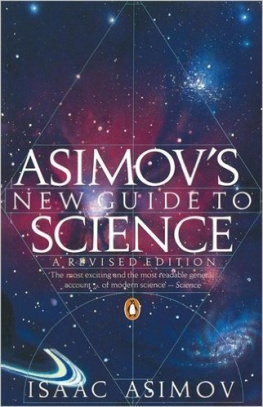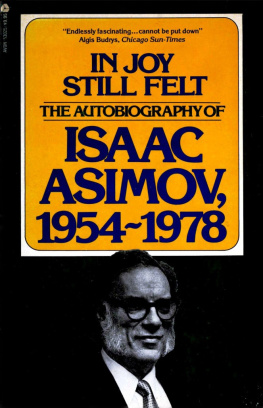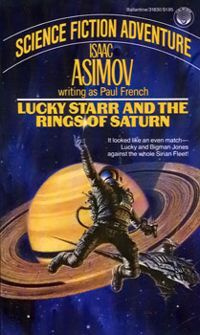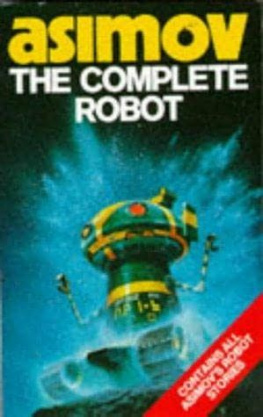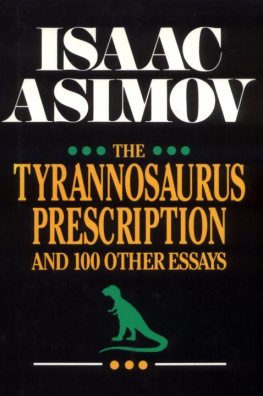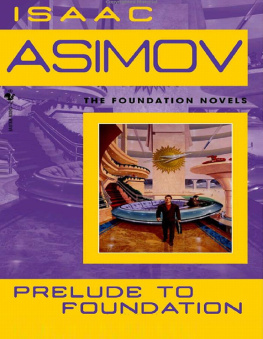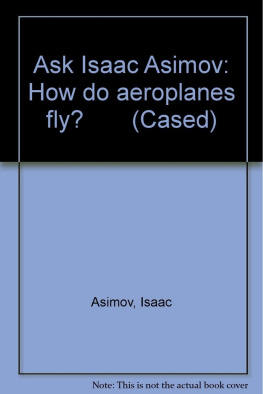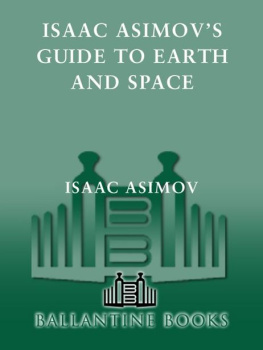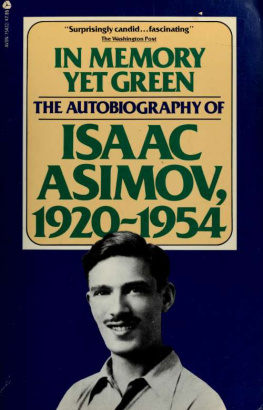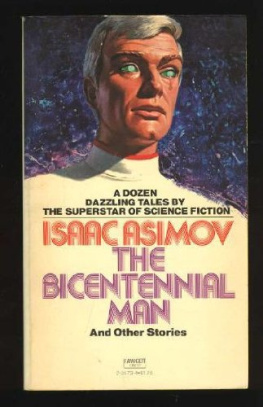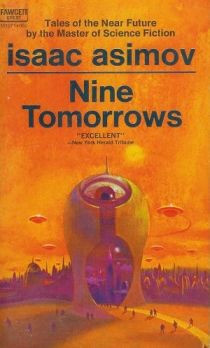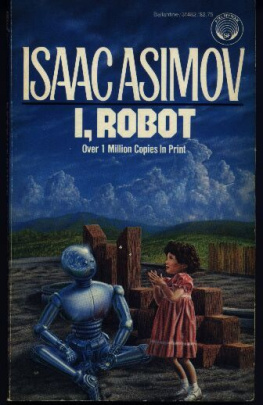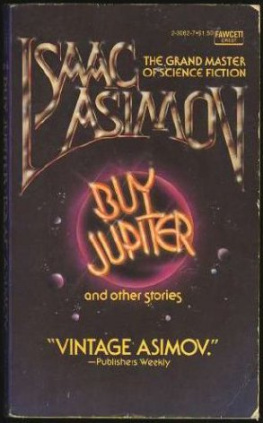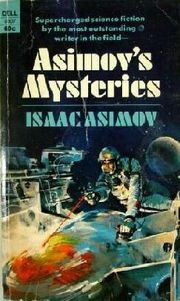Isaac Asimov - Asimovs New Guide to Science
Here you can read online Isaac Asimov - Asimovs New Guide to Science full text of the book (entire story) in english for free. Download pdf and epub, get meaning, cover and reviews about this ebook. year: 1993, publisher: Penguin Books, Limited (UK), genre: Children. Description of the work, (preface) as well as reviews are available. Best literature library LitArk.com created for fans of good reading and offers a wide selection of genres:
Romance novel
Science fiction
Adventure
Detective
Science
History
Home and family
Prose
Art
Politics
Computer
Non-fiction
Religion
Business
Children
Humor
Choose a favorite category and find really read worthwhile books. Enjoy immersion in the world of imagination, feel the emotions of the characters or learn something new for yourself, make an fascinating discovery.
- Book:Asimovs New Guide to Science
- Author:
- Publisher:Penguin Books, Limited (UK)
- Genre:
- Year:1993
- Rating:3 / 5
- Favourites:Add to favourites
- Your mark:
- 60
- 1
- 2
- 3
- 4
- 5
Asimovs New Guide to Science: summary, description and annotation
We offer to read an annotation, description, summary or preface (depends on what the author of the book "Asimovs New Guide to Science" wrote himself). If you haven't found the necessary information about the book — write in the comments, we will try to find it.
Asimovs New Guide to Science — read online for free the complete book (whole text) full work
Below is the text of the book, divided by pages. System saving the place of the last page read, allows you to conveniently read the book "Asimovs New Guide to Science" online for free, without having to search again every time where you left off. Put a bookmark, and you can go to the page where you finished reading at any time.
Font size:
Interval:
Bookmark:
New Guide to Science
and in every other aspect of my life
The rapid advance of science is exciting and exhilarating to anyone who is fascinated by the unconquerability of the human spirit and by the continuing efficacy of the scientific method as a tool for penetrating the complexities of the universe.
But what if one is also dedicated to keeping up with every phase of scientific advance for the deliberate purpose of interpreting that advance for the general public? For that person, the excitement and exhilaration is tempered by a kind of despair.
Science will not stand still. It is a panorama that subtly dissolves and changes even while we watch. It cannot be caught in its every detail at any one moment of time without leaving us behind at once.
In 1960, The Intelligent Mans Guide to Science was published; and at once, the advance of science flowed past it. In order to consider quasars and lasers, for instance (which were unknown in 1960 and household words a couple of years later), The New Intelligent Man s Guide to Science was published in 1965.
But still science drove on inexorably. Now there came the question of pulsars, of black holes, of continental drift, men on the moon, REM sleep, gravitational waves, holography, cyclicAMP, and so forthall post-1965.
So it was time for a new edition, the third. And what did we call it? The New New Intelligent Mans Guide to Science? Obviously not. The third edition was named, straightforwardly, Asimovs Guide to Science and was published in 1972.
And still science refused to stop. Enough was learned of the solar system, thanks to our probes, to require an entire chapter. And now we have the new inflationary universe, new theories on the end of the dinosaurs, on quarks, gluons, as welI as unified field theories, magnetic monopoles, the energy crisis, home computers, robots, punctuated evolution, oncogenes, and on, and on, and on.
So it is time for another new edition, the fourth; and since for each edition, I always change the name, I shall do so again. It is now Asimovs New Guideto Science.
ISAAC ASIMOV
New York
1984
Almost in the beginning was curiosity.
Curiosity, the overwhelming desire to know, is not characteristic of dead matter. Nor does it seem to be characteristic of some forms of living organism, which, for that very reason, we can scarcely bring ourselves to consider alive.
A tree does not display curiosity about its environment in any way we can recognize; nor does a sponge or an oyster. The wind, the rain, the ocean currents bring them what is needful, and from it they take what they can. If the chance of events is such as to bring them fire, poison, predators, or parasites, they die as stoically and as undemonstratively as they lived .
Early in the scheme of life, however, independent motion was developed by some organisms. It meant a tremendous advance in their control of the environment. A moving organism no longer had to wait in stolid rigidity for food to come its way, but went out after it.
Thus, adventure entered the worldand curiosity. The individual that hesitated in the competitive hunt for food, that was overly conservative in its investigation, starved. Early on, curiosity concerning the environment was enforced as the price of survival.
The one-celled paramecium, moving about in a searching way, cannot have conscious volitions and desires in the sense that we do, but it has a drive, even if only a simple physical-chemical one, which causes it to behave as if it were investigating its surroundings for food or safety, or both. And this act of curiosity is what we most easily recognize as being inseparable from the kind of life that is most akin to ours.
As organisms grew more intricate, their sense organs multiplied and became both more complex and more delicate. More messages of greater variety were received from and about the external environment. At the same time, there developed (whether as cause or effect we cannot tell), an increasing complexity of the nervous system, the living instrument that interprets and stores the data collected by the sense organs.
There comes a point where the capacity to receive, store, and interpret messages from the outside world may outrun sheer necessity. An organism may be sated with food, and there may, at the moment, be no danger in sight. What does it do then?
It might lapse into an oysterlike stupor. But the higher organisms at least still show a strong instinct to explore the environment. Idle curiosity, we may call it. Yet, though we may sneer at it, we judge intelligence by it. The dog, in moments of leisure, will sniff idly here and there, pricking up its ears at sounds we cannot hear; and so we judge it to be more intelligent than the cat, which in its moments of leisure grooms itself or quietly and luxuriously stretches out and falls asleep. The more advanced the brain, the greater the drive to explore, the greater the curiosity surplus. The monkey is a byword for curiosity. Its busy little brain must and will be kept going on whatever is handy. And in this respect, as in many others, man is a supermonkey.
The human brain is the most magnificently organized lump of matter in the known universe, and its capacity to receive, organize, and store data is far in excess of the ordinary requirements of life. It has been estimated that, in a lifetime, a human being can learn up to 15 trillion items of information.
It is to this excess that we owe our ability to be afflicted by that supremely painful disease, boredom. A human being, forced into a situation where one has no opportunity to utilize ones brain except for minimal survival, will gradually experience a variety of unpleasant symptoms, up to and including serious mental disorganization. The fact is that the normal human being has an intense and overwhelming curiosity. If one lacks the opportunity to satisfy it in immediately useful ways, one will satisfy it in other wayseven regrettable ways to which we have attached admonitions such as Curiosity killed the cat, and Mind your own business.
The overriding power of curiosity, even with harm as the penalty, is reflected in the myths and legends of the human race. The Greeks had the tale of Pandora and her box. Pandora, the first woman, was given a box that she was forbidden to open. Quickly and naturally enough she opened it and found it full of the spirits of disease, famine, hate, and all kinds of evilwhich escaped and have plagued the world ever since.
In the Biblical story of the temptation of Eve, it seems fairly certain (to me, at any rate) that the serpent had the worlds easiest job and might have saved his words: Eves curiosity would have driven her to taste the forbidden fruit even without external temptation. If you are of a mind to interpret the Bible allegorically, you may think of the serpent as simply the representation of this inner compulsion. In the conventional cartoon picturing Eve standing under the tree with the forbidden fruit in her hand, the serpent coiled around the branch might be labeled Curiosity.
If curiosity can, like any other human drive, be put to ignoble usethe prying invasion of privacy that has given the word its cheap and unpleasant connotationit nevertheless remains one of the noblest properties of the human mind. For its simplest definition is the desire to know.
This desire finds its first expression in answers to the practical needs of human life: how best to plant and cultivate crops, how best to fashion bows and arrows, how best to weave clothingin short, the applied arts. But after these comparatively limited skills have been mastered, or the practical needs fulfilled, what then? Inevitably the desire to know leads on to less limited and more complex activities.
Font size:
Interval:
Bookmark:
Similar books «Asimovs New Guide to Science»
Look at similar books to Asimovs New Guide to Science. We have selected literature similar in name and meaning in the hope of providing readers with more options to find new, interesting, not yet read works.
Discussion, reviews of the book Asimovs New Guide to Science and just readers' own opinions. Leave your comments, write what you think about the work, its meaning or the main characters. Specify what exactly you liked and what you didn't like, and why you think so.

